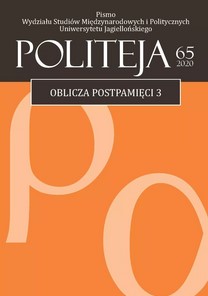Mongolska medycyna tradycyjna jako przestrzeń postpamięci w perspektywie medykalizacji
Mongolian Traditional Medicine as a Space of Post-memory within Medicalisation Perspective
Author(s): Marta HoffmannSubject(s): Cultural history, Health and medicine and law, History of Communism, Politics of History/Memory
Published by: KSIĘGARNIA AKADEMICKA Sp. z o.o.
Keywords: medicalisation; post-memory; traditional medicine; healers; sociology of medicine;
Summary/Abstract: The main aim of the article is to check whether traditional medicine practice could be a possible code of post-memory. Supporting traditional medicine in modern Mongolia by the government and the World Health Organization seems to be an interesting example of such a combination. After spending a long time under the communist rule, Mongolian society returns to their traditional concept of health and illness. Traditional Mongolian knowledge defines the state of being healthy as a harmony of three elements: khii, šar and badgan. Treating a disease which is perceived as a state of imbalance between these elements is strongly intertwined with Buddhist tradition practised by healers who are called emchi. Restoring such concepts among Mongolian society after the dominance of biomedical model of health during communism could possibly be a sphere of post-memory.
Journal: Politeja - Pismo Wydziału Studiów Międzynarodowych i Politycznych Uniwersytetu Jagiellońskiego
- Issue Year: XVII/2020
- Issue No: 65
- Page Range: 257-271
- Page Count: 15
- Language: Polish

